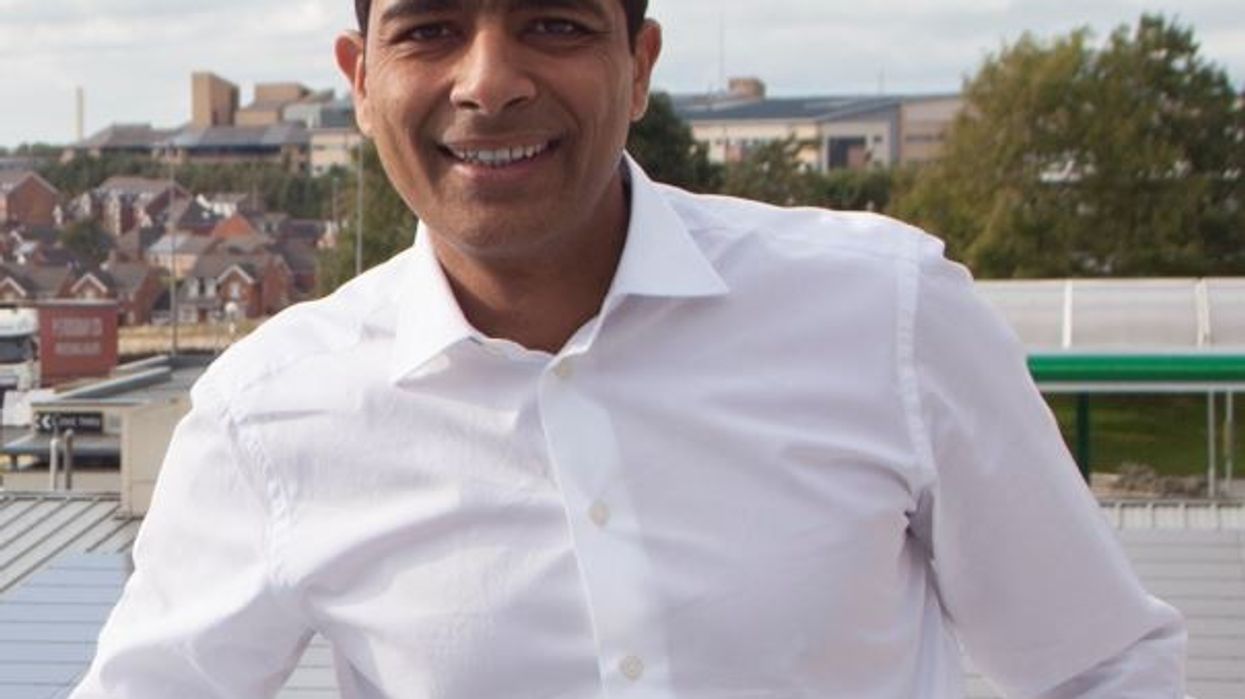ASDA boss Mohsin Issa defended his price-cutting measures as he told a group of MPs he grew up in the same environment as some of his customers from low-income households.
Issa, who co-owns Asda with his brother Zuber, appeared before the business and trade committee in a follow-up session to give evidence on food and fuel prices at the Commons last Wednesday (19). Defending his fuel-pricing strategy, Issa told Jonathan Gullis, the Conservative MP for Stoke-on-Trent-North, “I grew up in that same environment these customers are facing; I am absolutely in touch with these customers.”
Gullis demanded to know why Issa – who he noted drove a “gas-guzzling” Range Rover – was “taking customers for a ride” by not passing on fuel-price cuts to customers, such as those in his constituency, where the MP said the average earning is £100 less per week than other parts of the country.
Issa said, “I do understand where these customers are coming from. I grew up in a two up, two down house, sir. And I go there every week to visit my family and friends and my mom lives in that same neighbourhood still; so I do understand the plight of these customers.
“That’s why I chose to deliver incremental pay awards. I invested £200 million in cash pots back to these customers where they needed it most, as well as “dropped and locked” and lowering the prices of food.”
Mohsin and Zuber’s parents came from Gujarat, India, in the 1960s to work in textile industry and the family lived in a terraced house in Blackburn. They grew this business by acquiring a rundown three-pump service station where teenaged Zuber and Mohsin learned the trade by helping their parents.
Today the Issa family’s empire includes more than 6,300 convenience, retail and petrol forecourts, mainly in Europe and the US. Their wealth was estimated at £4.75 billion in Eastern Eye’s Asian Rich List 2022.
In an hour-long session before MPs last week, Issa defended his moves to offer customers the lowest fuel price among the other supermarket giants, Asda’s acquisition of the EG convenience business as well as contract negotiations with the company’s employees.
As the hearing began, Issa told the chair, Darren Jones, Labour MP for Bristol North West, “The issues we’re discussing are hugely important to your constituents, our customers and colleagues, never more so than at a time when the cost of living pressures are so significant.
“At Asda, we’re very proud of being a price leader. And so I’m happy to give you more detail on the business today.”
He said Asda made marginal profit at EBITDA level, but a loss when net profit was calculated and said the supermarket’s ultimate owners, Bellis Acquisition Company Plc, were based in a low tax jurisdiction because “our advisors recommend we do so”.
Issa asserted no dividends had been taken out of Asda, which the Blackburnbased brothers acquired from US group Walmart in 2021 for £6.8bn.
Later, the businessman explained to the committee how he led the fuel-pricing strategy and how they remained the market leader in that sector.
In the face of robust questioning by Jones and Anthony Mangnall, the Tory MP for Totnes, over why Asda was not the cheapest supermarket for fuel between January 2022 and May 2022, Issa said market volatility was a factor in the price changes. “When you look at fuel pricing, it is a very dynamic sort of space. There are lots of inputs in terms of effects, movements, oil pricing, fuel pricing, logistics, terminal on-costs, refining margins, etc,” he said.
And he added, “Our strategy did not change and we remain the price leader.”
To further questions on profit margins from Alan Brown, the Scottish National Party MP for Kilmarnock and Loudoun, Issa said, “Our margins went down from 2.7 per cent to 1.7 per cent. We took a profit cut of 24 per cent.”
He said, “I control the pricing in Asda. Our strategy was to be the price leader.”
Brown asked, “Did Asda deliberately target increased margins on fuel sales?
Issa replied, “We set our strategy, and then it is for the market to price.”
Jones intervened: “You are in control of the prices of petrol. Did you put the margin up? It is a simple question.”

Issa said, “We set the strategy to be the price leader.”
The chair continued, “I am not asking you about the strategy; I am asking you about the margin. Did you increase the margin?”
Issa replied, “The margin is the output of the strategy, sir. I do not control the margin. I control the strategy as the input.”
Jones queried as to who controlled the margin, to which the Asda boss said, “The market.”
The chair added, “You set the price, and what we are asking you is whether you intentionally set the price so that you would increase your margin.
Issa responded: “We set the price, and then others have an opportunity to undercut us.” Later, he added, “We always pass on decreases (on wholesale purchases) as quickly as we can to customers.”
Prior to Issa’s appearance in front of the committee, the MPs heard from the Competition and Markets Authority (CMA), where CEO Sarah Cardell and director Dan Turnbull discussed food and fuel price inflation.
Brown asked the CMA executives, “Would it be fair to suggest that Asda used the high volatility in fuel prices associated with the Ukraine war as a way to hide the transparency of them increasing their margins?”
Turnbull replied, “Based on the evidence we have seen and what Asda told us, my answer would be yes, and that is to do with the feathering of prices. If your intention is to reduce pump prices more slowly as wholesale prices fall, you can obviously only do that while wholesale prices are falling.”
When Issa appeared in the following session, Brown asked him if the supermarket saw an “an opportunity to create increased margins on the back of the volatility associated with the Ukraine war?”

Issa replied: “Absolutely not.” He explained that Asda set its pricing on the strategy based on the information the market is at.
“We put the price at whatever the price is. The competition has the ability to react to that, in which case we would react to that again,” Issa said.
The CMA fined Asda a total of £60,000 for failing to comply with two notices under section 174A of the Enterprise Act 2002. Issa said Asda had complied with the CMA and clarified the details they asked for did not exist in the business today. “We did not know that at the time. That is why we chased Walmart up for that information. The IT systems are based in the US, from legacy systems,” he said.
The Labour MP for Wansbeck, Ian Lavery, raised questions about the merger between EG and Asda and asked if Asda’s debt could become “unsustainable” after the deal.
Issa clarified that it was not a merger, rather a strategic acquisition.
“Asda is acquiring EG’s convenience and food service business. It gives us access to the convenience market, which is £40bn – the fastest growing of the food sector – and it also gives us access to the £60bn food and beverage market, which is growing at double digits.
“It will enhance Asda’s proposition,” the businessman said.
Lavery persisted with questions over debt and whether Asda’s acquisition of the EG UK and Ireland business contributes to paying off the latter’s debts.
Issa said, “I am here to represent Asda. Asda is acquiring the EG convenience and food service business for £2.27bn. How they choose to spend that money, I don’t know.” Lavery said, “I give up.”
There were questions from Labour MP Andy McDonald, who represents Middlesbrough, on Asda’s fire and hire strategy as part of its contract consultations with its employees.
Issa said it was a live consultation and added, “our position is to get to an amicable agreement with our negotiation.”
It was then the turn of Hayley Tatum, senior vice-president, chief people and corporate affairs office at Asda, to face robust questions on “dismissal and reengagement” of its employees.
Tatum said talks were ongoing and all options were available to the staff in question, while the MPs insisted Asda implemented a “fire and rehire” strategy.
Finally, Tory MP for Rugby and Bulkington, Mark Pawsey, asked Issa, “I have listened to your answers to my colleagues on fuel pricing and employment practices. What impression do you think the financial press, your suppliers and the colleagues within your business will have made of your representation before this committee this afternoon?”
Issa replied, “I think they can only take the actions that we conduct on a daily basis, not this committee. We have an active working relationship with our suppliers, as we do with our colleagues.” Jones concluded that “this has been quite an extraordinary session.”




